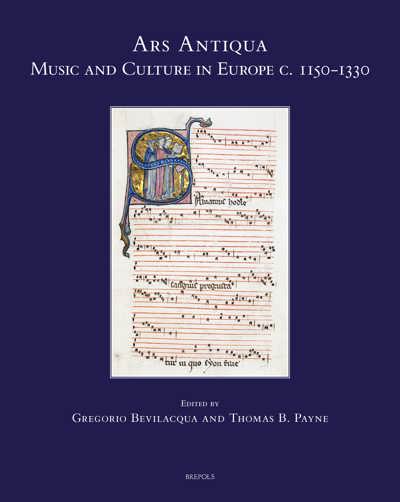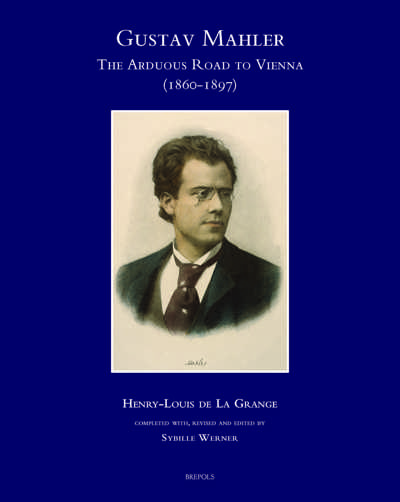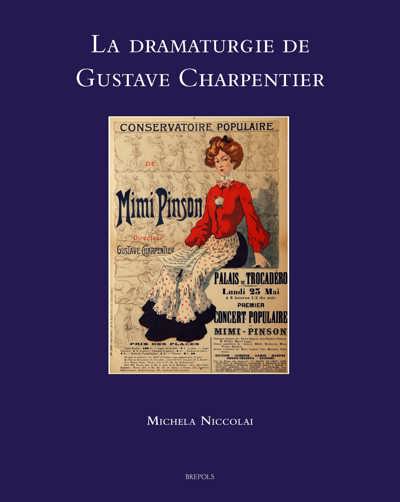
Genre and the Production of Gendered Identity on the Lyric Stage
Mark Everist, Jennifer Walker (eds)
- Pages: xxii + 317 p.
- Size:210 x 270 mm
- Illustrations:22 b/w, 5 tables b/w., 17 music examples
- Language(s):English
- Publication Year:2025
- € 130,00 EXCL. VAT RETAIL PRICE
- ISBN: 978-2-503-61558-5
- Hardback
- Available
From Italian opera seria to Parisian music-hall ballet and Greek operetta during the interwar years, these essays shed new light on the complex and complementary ways in which gender and the production of gendered identities were invariably contingent upon — but nevertheless moved beyond — the expectations of genre on the lyric stage.
Mark Everist is Professor of Music at the University of Southampton. He is the author of eight monographs, has published over 80 articles in peer-reviewed journals and collections of essays, and is the recipient of the Solie (2010) and Slim (2011) awards of the American Musicological Society. He was visiting professor at the Sorbonne in 2021-2022 and has been elected to a fellowship at the French Institute of Advanced Studies for 2024-2025.
Jennifer Walker is an Assistant Professor of Musicology at West Virginia University. Her first monograph was the 2022 winner of the American Musicological Society’s H. Robert Cohen/RIPM Award, and her book on Hector Berlioz’s «Requiem» is in press with Oxford University Press. Other articles and book chapters have appeared or are forthcoming in «Berlioz and His World», «The Cambridge History of Christian Sacred Music since 1500», «Cambridge Opera Journal», and the «Journal of Music Criticism».
The lyric stage is a cultural site at which constructions of gender have been developed, mitigated and, at times, hindered by musical performance. From the castrati of the seventeenth century to Mozart and Massenet’s cross-dressed Cherubinos, musical works created for lyric stages have often complicated traditional and normative readings of the gender and sexual identities of their characters, allowing composers, performers, and audiences to move beyond simple biological understandings of gender and sex. The erotically charged sights and sounds of such productions called into question accepted generic conventions, thus revealing the very instability of normative identity and musical convention that European societies presumed integral to their social codes and generic constructs. The fourteen case studies in this volume explore these topics through various geographical, historical, and musical perspectives: from Italian opera seria to Parisian music-hall ballet and Greek operetta during the interwar years, these essays shed new light on the complex and complementary ways in which gender and the production of gendered identities were invariably contingent upon — but nevertheless moved beyond — the expectations of genre on the lyric stage.
Mark Everist and Jennifer Walker, Introduction
Gender, Genre, and Gender Crossing
Orsolya Gyárfás, «Too Soft and Tender»: Opera Seria Masculinity and the Case of Mozart’s La clemenza di Tito
Nicola Badolato, Effeminate Heroes and Female Warriors in Seventeenth-Century Venetian Libretti: Between Cross-Casting and en travesti
Luis Antonio González Marín, Women in Men’s Costume: Heroic Roles and Female Singers in Hispanic Baroque Lyric Theatre
Lucía Magán Abollo, The Voice of Heroes: Catalina Pacheco or ‘la mujer vestida de hombre’ in the Eighteenth-century Spanish Theatre (1738-1760)
Valeria De Lucca, Norma travestie (1841) and its ‘Male Heroines’
Gender, Genre, and Eroticism
Sarah Gutsche-Miller, Imagined Eroticism: The Art of Suggestion in Parisian Music-Hall Ballet
Kimberly Francis, The Sounds of Sex: The French Garment Worker of the Belle Époque
Jonathan Mallada Álvarez, Sexuality and Eroticism at the Teatro Apolo in Madrid (1900-1910)
Carl Tertio Druml, Dance Craze and Eroticism: Operetta as a Carrier of Zeitgeist
Peter Mondelli, What Use is Émile Zola to the Operetta Historian? Reconsidering the Roles of Courtesans on the Operetta Stage
Gender, Genre, and Lyric Space
Mark Everist, ‘Opera’ off the Stage: Gender and Genre in opéra de salon
Elena Luporini, Do Not Open that Door: Perspectives on Gender in Béla Bartók's Bluebeard’s Castle
Sonja Starkmeth, Taking Centre Stage: ‘Chorus Girls’ in Late Victorian Popular Musical Theatre
Evi Nikita, Women in Greek Operetta between the Wars: Gender, Identity and Sexuality
Index of Names




